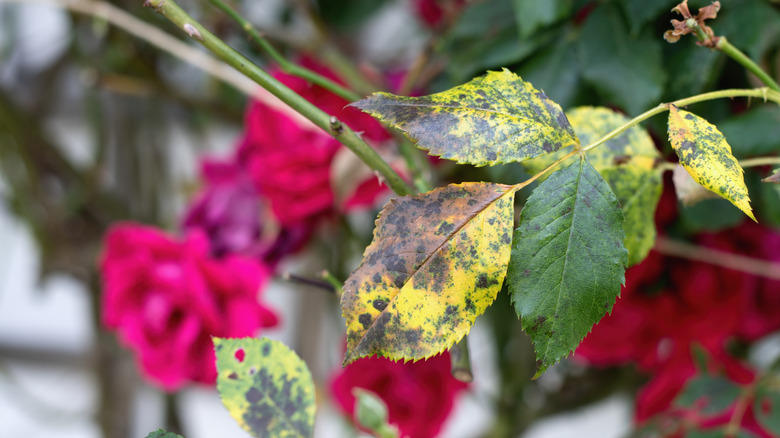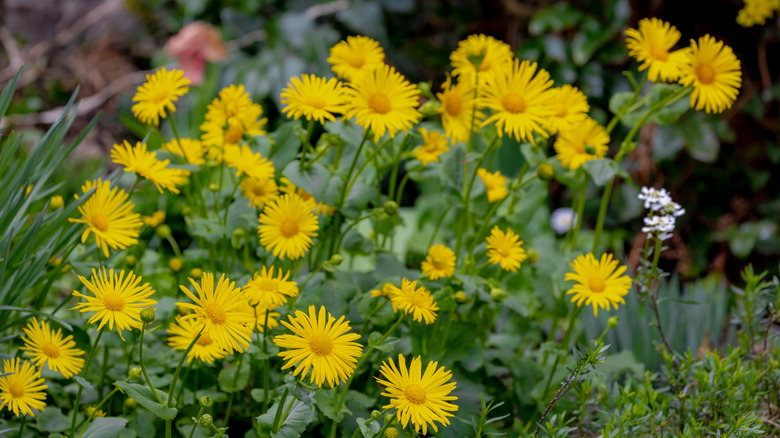The Fast-Spreading Perennial That Can Make Your Rose Bushes Weak & Sick
Roses are irresistible. They are pretty, and they smell amazing. People often rush to buy rose plants, but too often they end up asking, "what makes roses such difficult plants to grow in the garden?" Some blame the weather, and others end up pointing to pests. However, it could also be that cheery yellow flowering ground cover that you thought would brighten up your flower beds. Now, luckily, many types of yellow flowering ground covers are harmless, or in fact, good for your garden. However, if you went with leopard's bane (Doronicum spp.), you could be in big trouble.
Leopard's bane has a tendency to form dense clumps that spread by underground rhizomes. This dense growth habit can lead to increased moisture levels in the soil and reduced air flow where the soil meets foliage. Such a persistently damp, dense microclimate at the base of rose plants can raise the risk of serious foliar disease, including black spot, making your roses weak and sick.
Controlling leopard's bane
Leopard's bane is a herbaceous perennial often used as a massed ground cover in woodland borders. It flowers mainly in spring and has daisy-like yellow blooms on strong stems. If conditions are right, it can escape its intended planting sites. This usually happens via the seeds or its creeping growth habit, which can cause it to form new patches all on its own. This is exactly why experts often suggest looking into the ability of a plant to naturalize in a particular area before planting it. Doing so will help avoid future management problems.
If leopard's bane has already set its feet in your rose beds, try to thin or relocate its clumps, and improve drainage by using drainage materials to relieve your plants of excess moisture and to avoid consistently damp conditions. If you don't do this, your roses could fall victim to black spot disease, which thrives in damp places with poor air circulation.
Also, because of leopard bane's dense growth habit, it can compete with roses for soil nutrients and water, making them weak and even more prone to disease. To avoid spreading leopard's bane, be sure to keep your compost clean to avoid accidentally introducing its seeds into your rose beds. Lastly, monitor your rose beds regularly, and if you see leopard's bane, follow local extension guidance for safe removal and long-term control.

